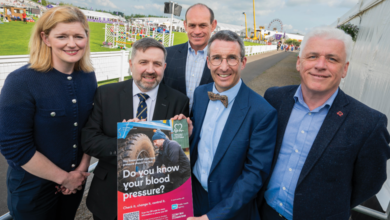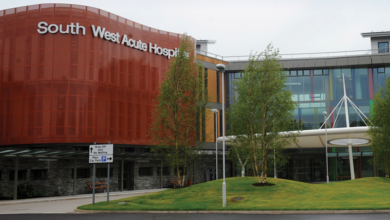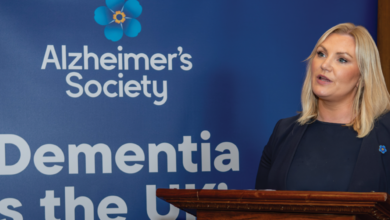Consecutive cut for investment in general practice services

Investment in Northern Ireland’s general practice services remains the lowest in the United Kingdom.
A new report published by the Department of Health (DoH) entitled Investment in General Practice, Northern Ireland 2019-20 to 2023-24, shows that the total investment in general practice throughout the region has seen a continued cut in real terms following the significant cut of 7 per cent in the previous financial year.
In 2023/24, the total investment in general practice, including the reimbursement of drugs dispensed in general practice was £388.2 million. Compared to 2022/2023, which seen £374.7 million, this represented an increase in the total investment in GP practices of 3.6 per cent in Northern Ireland. However, in real terms and accounting for inflation, it equates to a decrease of 2.48 per cent, as the final figure of investment for 2022/23 (in real terms) stood at £398.1 million.
The Northern Ireland Audit Office (NIAO) published a report in March 2024 entitled Access to General Practice in Northern Ireland. The report found that investment in general practice has increased steadily since the introduction of the General Medical Services (GMS) contract in 2004/05, and overall by just under 37 per cent in real terms between 2004/05 and 2022/23.
However, the 2022/23 financial year marked a slight reduction in investment compared to 2021/22 which saw £377.8 million in investment (£428.4 million in real terms). Similarly, funding per patient also fell slightly (from £188 to £185), marking the first reduction in funding since 2007/08 and given the levels of inflation in 2022/23, it represented a real term cut in of 7 per cent compared to 2021/22.
In response to the recommendation in the report of the Review Body on Doctors’ and Dentists’ Remuneration (DDRB), a 6 per cent uplift was applied for GP pay. In addition, there was a 6 per cent uplift for practice staff expenses and a 7.3 per cent uplift for other expenses (3 per cent recurrent) were also applied, representing an investment of £16.624 million (of which £2.182 million is non-recurrent).
However, the British Medical Association (BMA) Northern Ireland GP committee chair Alan Stout states that general practice is in “absolute crisis”, and criticised the Department of Health’s attitude towards the figures.
“Right across Northern Ireland, GP practices are facing spiralling costs, rocketing inflation, a huge increase in the need for appointments and ever-increasing complexity and yet we see a real time reduction in funding to general practice,” Stout states.
“It is astonishing to see it clearly laid out that we are delivering so much while facing a real terms decrease in funding of 6.92 per cent.”
Per capita, investment in general practice in Northern Ireland has traditionally been lower compared to the other regions in the UK. There is evidence of some convergence in recent years (particularly with Wales), but the region is still lower than England and Scotland.
Nearly £68 million other payments were made during the 2022/23 financial year. Of this, almost £24 million related to premises and IT costs and a further £17 million covered other central and administered funds and services e.g., the cost of treatment room nurses. Another £28 million was allocated to GP out-of-hours services.
Published UK-wide data on investment in general practice was discontinued from 2018 due to changes in contractual arrangements in each country, meaning payment categories are no longer directly comparable.
Furthermore, the lower investment in general practice is reflected in lower earnings for GPs in Northern Ireland. While not taking account of hours worked, the latest available data for 2021/22 year indicates that on average, GPs in Northern Ireland earned £104,400 (after expenses but before tax) similar to GPs in Wales. This however, was £6,000 less that GPs in Scotland and nearly £14,000 less than GPs in England. Data for earlier years indicates that average GP earnings in Northern Ireland have been the lowest across the UK since 2016/17.
Moreover, the Labour Government’s first Budget in 14 years has drawn stark criticism among GP practices throughout the region. As part of the Budget, the Northern Ireland Executive has been provided with a £18.2 billion settlement in 2025/26. While the Budget did not specify spending on health, this includes a £1.5 billion top-up through the Barnett Formula, with a £1.2 billion for day-today spending and £270 million for capital investment.
According to the BMA, this means that the Northern Ireland Executive has “run out of reasons” not to “properly” cover GP indemnity costs. In addition, the UK Budget has been criticised for increasing the National Insurance which has left GP practices vulnerable.
Stout states that GP surgeries would be negatively affected by the Budget, saying that it would not be feasible for some surgeries to meet the National Insurance increase and the minimum wage increase. He warned that practices throughout the region were already under pressure and that there was a possibility that practices could close. Just one week after the Budget was announced, a surgery in County Derry announced it would close, with more than 2,300 patients being transferred to surgeries in the surrounding area.
Chair of the Northern Ireland General Practitioners Committee Frances O’Hagan says: “The Budget looks like it could be good and bad news for GPs. While we hope the allocation to Northern Ireland can address some of the issues, the costs GPs as employers will now face in terms of changes to the increase in National Insurance will be an additional financial pressure.”





